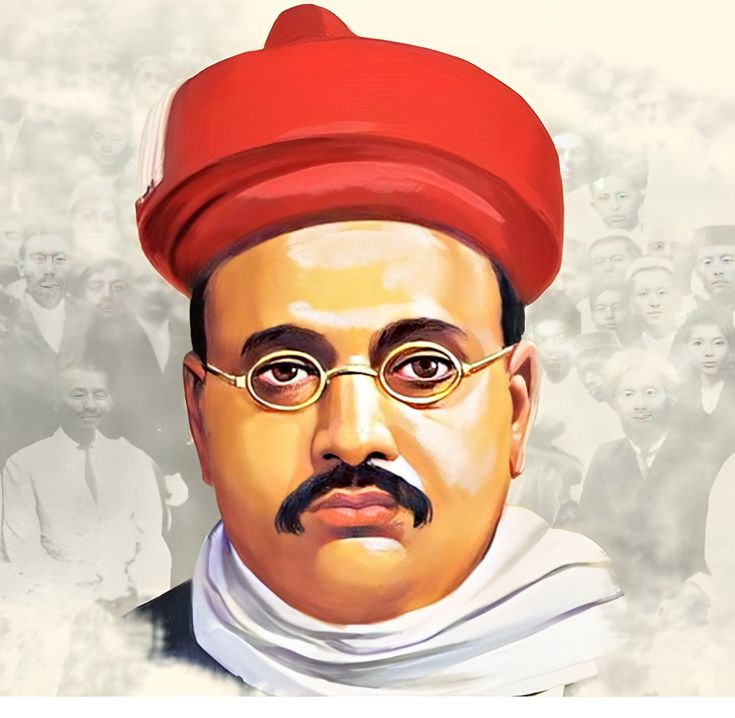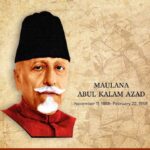Biography Gopal Krishna Gokhale: The Visionary Leader Who Shaped India’s Future (Top 10 Facts About His Impact)
Biography Gopal Krishna Gokhale: Gopal Krishna Gokhale was one of the most respected and influential leaders in India’s pre-independence era. Known for his intellectual depth, dedication to reform, and commitment to the nation’s welfare, Gokhale was a pivotal figure in the Indian freedom struggle and social reform. His ideals and philosophies were deeply rooted in the belief that India needed both social and political reforms to move towards progress and independence.
Biography Gopal Krishna Gokhale Early Life and Education
Gopal Krishna Gokhale was born on May 9, 1866, in a small village in the Ratnagiri district of Maharashtra. Born into a Brahmin family, Gokhale’s parents valued education and encouraged his intellectual pursuits from an early age. He was a brilliant student and excelled in his academic studies. After completing his early education in his village, he moved to Bombay (now Mumbai) to pursue higher studies at Elphinstone College.
Gokhale’s strong academic background laid the foundation for his future as an influential leader. He was particularly inspired by the writings of Western thinkers like John Stuart Mill and Herbert Spencer, but he was also deeply connected to India’s cultural heritage. Gokhale was one of the first leaders to advocate for education as the key to unlocking India’s potential for both social and political transformation.
Biography Gopal Krishna Gokhale Role in Indian Politics and Social Reform
Gopal Krishna Gokhale’s career in politics began when he joined the Indian National Congress (INC) in 1889. He was a moderate leader who advocated for gradual reforms within the British colonial system, as opposed to more radical approaches advocated by some of his contemporaries. He firmly believed that India needed to work within the framework of the British government to achieve its objectives of self-rule and economic development.
One of Gokhale’s most significant contributions was his emphasis on education. He believed that the Indian populace could only achieve true independence through the power of knowledge and intellectual growth. He advocated for the establishment of educational institutions across India, particularly in rural areas, and pushed for reforms in the British education system to make it more accessible to the masses.
Gokhale was also a strong proponent of social reforms, especially in areas like untouchability, child marriage, and the status of women. He was deeply concerned with the welfare of India’s lower castes and the marginalized sections of society, and he worked tirelessly to improve their condition.
Biography Gopal Krishna Gokhale Impact on Indian Society
Biography Gopal Krishna Gokhale impact on India cannot be overstated. His approach to politics and reform set the tone for a generation of leaders who followed him. His advocacy for moderation and education laid the groundwork for future movements, including the independence struggle that would culminate in India’s freedom in 1947. Many of Gokhale’s ideas were embraced by later leaders, including the likes of Mahatma Gandhi, who regarded Gokhale as his mentor.
Gokhale’s dedication to social reforms also left an indelible mark on India’s social fabric. By advocating for better education and social justice, Gokhale helped shape the policies that would later be adopted by the government of independent India. His influence also extended to the establishment of the Servants of India Society, an organization that aimed to promote national service and social welfare.
Biography Gopal Krishna Gokhale Daily Life and Work Habits
Gopal Krishna Gokhale’s daily routine reflected his commitment to both intellectual and social pursuits. Known for his disciplined lifestyle, Gokhale was deeply focused on his work and believed in the power of consistency and hard work. He often spent his mornings reading and studying, particularly works related to political theory, social issues, and philosophy.
In the afternoons, Gokhale would meet with other political leaders, intellectuals, and activists to discuss India’s future. His leadership was characterized by his calm demeanor, and he was highly respected by his contemporaries for his ability to listen, think deeply, and offer solutions that were rooted in reason.
Though deeply committed to his work, Gokhale also believed in a balanced life. He was a man of few personal desires and led a life of simplicity, focused on the welfare of the nation.
Biography Gopal Krishna Gokhale Frequently Asked Questions (FAQs)
1. Who was Gopal Krishna Gokhale?
Gopal Krishna Gokhale was an Indian political leader, social reformer, and educator in the late 19th century. He played a significant role in the Indian National Congress and was a key advocate for educational and social reforms.
2. What was Gokhale’s contribution to the Indian freedom movement?
Gokhale was a moderate leader who emphasized gradual reforms within British colonial rule. He advocated for education, social justice, and the welfare of the marginalized. His ideas influenced the later leaders of the independence movement, including Mahatma Gandhi.
3. What were Gokhale’s views on education?
Gokhale believed that education was the key to India’s progress. He advocated for more educational institutions, particularly in rural areas, and pushed for reforms to make education more accessible to the masses, including women and lower castes.
4. How did Gokhale impact social reform in India?
Gokhale was a strong advocate for social reforms, including the abolition of untouchability, child marriage, and the improvement of the status of women. His work laid the foundation for many of the social reforms that were later adopted in independent India.
5. How did Gokhale influence Mahatma Gandhi?
Mahatma Gandhi regarded Gokhale as his mentor. Gandhi was deeply influenced by Gokhale’s moderate approach to politics, social reform, and his emphasis on education as the path to empowerment.
Key Facts About Biography Gopal Krishna Gokhale
- Founder of the Servants of India Society: Gokhale founded the Servants of India Society in 1905, aimed at fostering social reform and promoting national service.
- Moderate Leader: Gokhale was known for his moderate stance in the Indian National Congress and advocated for gradual reforms within British rule.
- Advocate of Education: He worked to reform India’s education system and increase access to education, particularly for women and lower castes.
- Social Reformer: Gokhale played a significant role in advocating for the abolition of child marriage and the upliftment of untouchables.
- Mentor to Mahatma Gandhi: Gokhale’s ideas deeply influenced Mahatma Gandhi, who regarded him as a guiding force in his own political philosophy.
Biography Gopal Krishna Gokhale Significance and Observance
Biography Gopal Krishna Gokhale: Gopal Krishna Gokhale’s legacy is marked by his tireless efforts toward social reform, education, and the political empowerment of Indians. His contributions were instrumental in shaping the Indian National Congress’s political agenda and provided the intellectual and moral foundation for the struggle against British rule. His advocacy for education and social justice continues to inspire policy-makers, educators, and activists in India today.
Gokhale’s birthday, May 9, is observed as a day of remembrance for his contributions to the nation. Educational institutions, social organizations, and political parties continue to honor his memory and principles, striving to uphold his vision of a free, fair, and educated India.
Conclusion: Biography Gopal Krishna Gokhale
Biography Gopal Krishna Gokhale: Gopal Krishna Gokhale was a visionary who understood that India’s progress could only be achieved through social reforms and education. His commitment to the nation’s welfare, his moderate political approach, and his advocacy for social justice and equality left a lasting impact on India’s path to independence. His life remains an inspiring example of leadership that prioritizes intellectual rigor, social change, and national service.











Here, you can discover a great variety of casino slots from leading developers.
Users can enjoy classic slots as well as modern video slots with high-quality visuals and interactive gameplay.
If you’re just starting out or a casino enthusiast, there’s always a slot to match your mood.
casino slots
The games are ready to play 24/7 and designed for desktop computers and tablets alike.
No download is required, so you can start playing instantly.
The interface is user-friendly, making it convenient to find your favorite slot.
Sign up today, and discover the excitement of spinning reels!